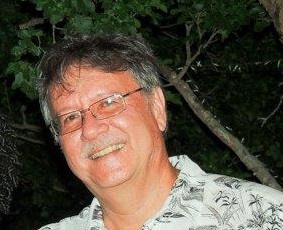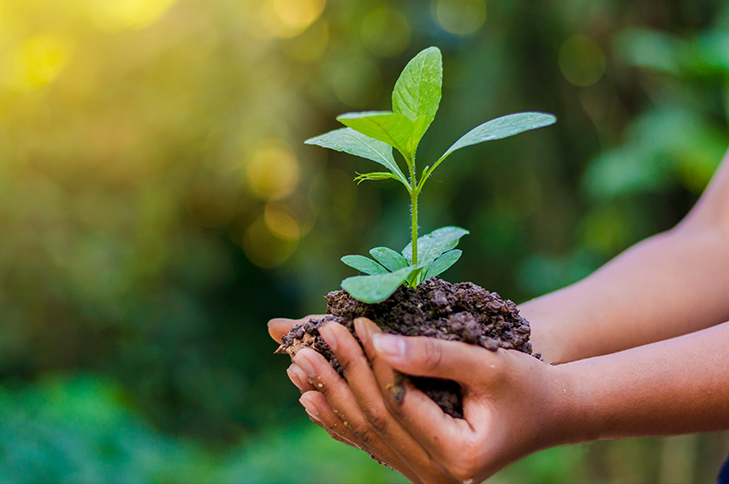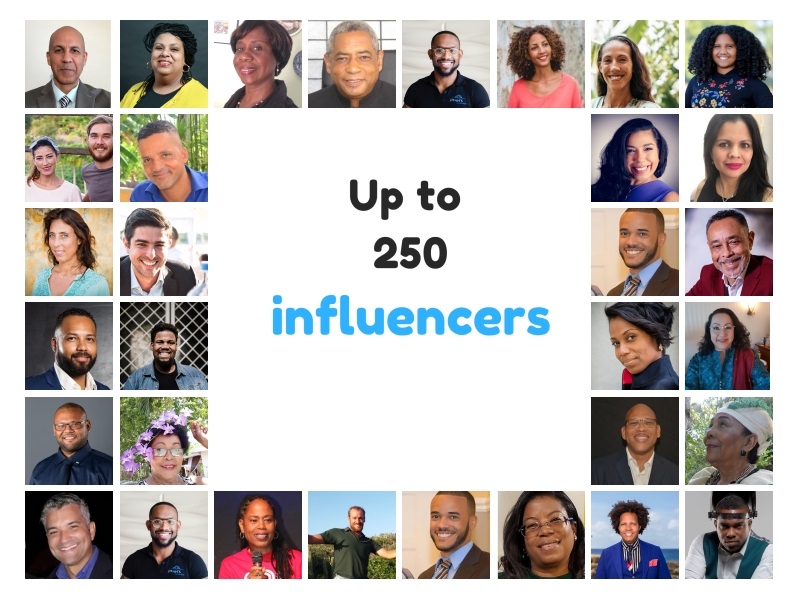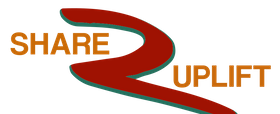Influencer Jeff Sybesma
Interview September 2022

Jeff, could you share with us some information about your family life?
I was born in Indonesia to a family with Dutch roots, that had been living in Indonesia for some generations. “Sybesma” my last name, dates from Friesland, Netherlands, and as my father’s ancestor was one of the sons of a KNIL soldier that got married in Indonesia and started a family. I am the oldest son out of a family of three children. But, if you look at my appearance, you don’t see a lot of “indo” traits. We are a typical family of the Dutch Kingdom, as my mother and sister live in Holland and my brother lives in Aruba and I live in Curaçao. My father passed away this year but lived in Curaçao since 1959. I am happily married to a “Yu di Kòrsou” and we have a daughter that studies in Holland at the moment.
I was very young when we left Indonesia. I don’t remember anything about Indonesia. My parents were given a choice to either become Indonesians or forcefully leave Indonesia if they would choose to keep their Dutch nationality. Back in Holland in the 50-ties, my parents didn’t experience Holland as a pleasant country, the people were not nice to them, and the climate wasn’t what they liked as they needed e.g. to live on a coal stove to keep them warm. General heating was not common at the time. My father wanted to migrate and go to the USA, but ended up in Curaçao, part of the Kingdom of Holland. Curaçao has many similarities of Indonesia which made living much more pleasant than in Holland. I do feel after so many years that I am a real “Yu di Kòrsou” although I wasn’t born here. Nevertheless, there are short-sighted people who only consider “Yu di Kòrsou” those people who are born in Curaçao or are children from people born in Curaçao.
After my studies and my mandatory military service over there in Holland, coming back to Curaçao my boss then at my first job on the island told me to forget everything I have learned at the University as “in Curaçao we do everything differently”. Here we used to network with friend & family, use nepotism, and politics and we don’t use policy plans and an organized way to work to get things done. He also told me to marry a “Yu di Kòrsou”, as that would help me integrate better into the Curaçao society. I didn’t agree with him and regarding my private life and marital partner he has nothing to do with that.
When I went to study biology in the Netherlands in 1972 I felt immediately at home, but my Dutch needed some tweaking as I would ask my fellow students where the “sushi-bak” was, meaning “where is garbage bin”, and more words that I use to mix up with Papiamentu, but those were the nuances that coming from Curaçao as a “Yu di Kòrsou” had to adjust to, on top of some cultural differences.
But these days it is my personal opinion that I feel more that I am a world citizen. I sincerely believe that I could live and prove myself in any place in the world where I would live. And I think we all have to do so. It would make the world a much better place to live in.
How important were your parents to whom you have become right now?
My parents played a very important role in who I have become, as they gave me the freedom to make the choices I wanted to make. My father was the breadwinner in our family, and my mother played a very important emotional role in my upbringing. My mother cooked, picked me up from school, and attended school if there were any problems at school, my mother organized the day to day life of the whole family. My father was a kind of a last resort when we needed to be disciplined. If I needed to go to some party, during my teenage years, those were the times of the Beatles and the Rolling Stones, my mother used to sew me my next modern new outfit to attend those parties. And my parents were always willing without any complaint to bring and pick me up to any gathering or party I wanted to go. Even if that meant getting up in the middle of the night. For all these things, I appreciate my mother (and late father) enormously.
Could you share something about any other aspect of your educational background and your experiences?
I will elaborate on my education starting from primary school. My father wanted to migrate to the USA in 1959 but we ended up in Curaçao as he found a job at the water and electricity plant (now Aqualectra) at Mundo Nobo. We went to live at first in Mundo Nobo and later moved to Julianadorp. I went to the primary school Mgr. Niewindt College at Mundo Nobo, where in those days the Roman Catholic Sisters and Brothers were still dominatingly present and I went to church in Mundo Nobo. I was an altar boy shortly and served under the then Pastor Ellis (who later became Bishop), but was expelled as I secretly drank from their little wine bottle. I went to Maria Immaculata Lyceum (MIL) during my high school years, which just had become a mixed school for boys and girls. I was spoiled in high school in the sense that I was one of the few boys in a classroom full of beautiful girls. Some of the girls had their driver’s licenses, so during pauses we would go buy some snacks at Zuikertuintje snack bar, or go for a swim. All this had formed me. I graduated with a 10 in biology and thought it would be a good thing to continue my advanced university studies in biology.
I decided to go to the University of Utrecht and on arrival, noticed that I wasn’t signed up because of an administrative error. However, after a passionate plea from my mother to the Dean pointing out my 10 for biology, I was allowed to sit on the frame of the windows of the classrooms. There were 250 students and during a photo shoot we were asked to separate 100 students from the 250 students. The reason was that those 100 would make it to their final degree and even from those 100, only 25 would find a job as a biologist, since the rest would be forced to re-train themselves. It was a psychological strategy to make us aware that if you did not do your utmost to succeed, you would fail. Usually, when you choose a field of study you do this based more on emotional than rational grounds. I made the choice to stick with biology anyway. I choose as mayor field of study the direction of ecology. It would require me to do some 10 extra subjects, and I would take 6 months extra to graduate. For career purposes it would have not made a difference if I had chosen general biology, but I did it anyway and it gave me some advantages later on in my career.
Back in Curaçao, I started to work at Carmabi/Stinapa as a marine biologist. Working at Carmabi/Stinapa I also worked as a special police officer with regard to environmental legislation, such as the prohibition to spearfish. One day I booked someone who was illegally spear fishing and to my upmost surprise we lost the case in court because the archaic law stated that I needed to catch this person red-handed as he was spear fishing, which he wasn’t at the moment I cited him. However, As I found fish in his boat that had holes in them and from the harpoons that also were in the boat, it was obvious to me that he trespassed the law. The judge however made me the villain, at least that is what I sensed, which triggered my curiosity about the law I did not understood. Because of this I started studying law so that later on, I could understand that the legislator made a law that was incomplete. That is the moment when I decided to go and study law at the UNA. At that time I went to work for the Ministry of Public Health and Environment and I was allowed by the Minister to attend classes in the afternoon. I graduated within the nominal time. It is my belief that for law studies the older you are, the better one is capable to empathize with the law making it easier to understand the legal profession.
We know you are a biologist, legal advisor, associate professor, member of the “Raad van Advies (RvA)” and part-time Judge am I correct, have I covered all your roles? What drives you to be so multi-faceted?
I will elaborate on how I became so multi-faceted. As a biologist who started to study law looks somewhat strange, but wasn’t a switch of 180 degrees. I wanted to protect the environment and nature. I studied law to help protect the environment and nature even better via my writings and my behavior. I liked law once I started studying it and I understood its principles well. It gave me a broader view of things. I even got my PhD in law. As a civil servant, I also got interested in different subject matters like administrative law and constitutional law and became a part-time teacher, which I am still until this day. I was offered to become a member of the Constitutional Legal Advisory Board of the Government (RvA) because of my legal background. I became a part-time Judge in administrative law and all these mixes of things are related to one another.
Of late you have been writing a lot on legal issues regarding our local environment and have been writing articles in the local newspapers. Why are you so outspoken about this subject matter?
As my main educational background is biology and law, it is logical to write about a combination of these two. As a biologist, I was trained to think in terms of sustainability. As a lawyer, I was trained to use the law as an instrument to reach these goals. Therefore, the combination for me is logic. There are many ways to protect the environment and to fight non-sustainable actions by anyone or any organization, public or private. Since my knowledge is based on biology and law it is obvious that I chose this route.
What is your BIG WHY or driving motivation to be who you are right now and do what you are doing now?
The way you evolve and the route to what you become are based on circumstances and personal choices. I chose biology and later Law. If I have not done so, I could have become a medical doctor, physics professor or chemist, or pharmacist. The most important thing however is making a choice and to give yourself 100% to reach the maximum in what you chose.
For example: After I graduated in Biology I decided to stay in Holland. I had a girlfriend and she wanted me to stay in Holland. But during those days military draft was mandatory. Contrary to other fellow graduates that immediately returned to Curacao after their studies, I stayed and was called into military service. My relationship with my then girlfriend stranded because she wanted me to refuse service which I did not do. During the recruitment process, I was offered a choice to become a sergeant or a lieutenant. There were too many recruits to become a sergeant and too few recruits to become lieutenant. We were then asked who wanted to become a lieutenant and I was the first and only one willing to become a lieutenant, and I did not regret this for a single moment. The reason the other recruits did not apply was that they had to stay 3 months longer in military service. For me it was an opportunity to invest in myself, as they invested a lot in me, they taught me to guide groups, work in groups, delegate, and control and they allowed me to become a leader and lead and those 3 months were a worthwhile investment to me and I never regretted that choice.
I would also recommend to never stay longer than about 4-6 years in the same function. Go and look for another challenge in your work after a certain period in a specific function. It offers you the opportunity to refresh, amplify and deepen your knowledge and skills. After Carmabi, I worked at the Ministry of Public Health and Environment, studied Law, and after some years took up a job at the Central Bank. As a final switch in my career, I wanted to become a full-time judge and I researched this. It would take me only two years to be integrated in the court system, but stopped pursuing this career move as I needed to keep working until I was 70 years old while at that moment I could retire alternatively when I was 60 years old. Nevertheless, I became a part-time judge in administrative Law, after all, so I could still experience what being a Judge is all about. The point is that I have proven to myself that I am not afraid to try something new and accept a new challenge in my career, meet new people to work with, trying new things. My recommendation is, never to be afraid to follow your heart. Some call it luck, I would say I worked hard to be successful. Making hard choices which I have done during my whole life, makes you stronger as life can be ruthless at times.

What are your plans for the coming years, let us say 5 years from now?
I am 68 now. Since I am retired I will focus on the three main activities I am doing right now: a member of the Constitutional Legal Advisory Board of the Government (RvA), a part-time judge in administrative law, and a part-time professor at the Law Faculty of the UoC.
A magic age is 70. By law, one cannot be a member of the RvA anymore. Since my second term ends next year, it is obvious that it will not be extended anymore. As a part-time judge, the deadline is around 75. But, as long as I am healthy and sane I can and will write, an activity I like very much, about important topics. Both popular and scientific. I am aware of a movement that questions the 70 years. This movement believes that as long as you have a healthy body and mind, why not continue to work and offer what you are capable off, even after you have turned 70? Does it affect the possibilities of the next generations to take on new jobs? I would say then, we have to create extra jobs.
But off course there should be some kind of exam or test to prove that the person is fit for the job. For me within 2 years, I will be 70 and this will affect the activities I am now involved in even if I am feeling good enough to continue what I am doing.
What are the challenges that you are dealing with? And how are you dealing with these different challenges you confront?
As a “Pensionado” the most important challenges are your physical and mental health. To take care of it you need to stay physically and mentally active. I go to the gym three times a week, I water the garden plants every other day with the recycles’ water of the washing machine. Since we have a lots of plants it is almost an hour of carrying full buckets of water around.
To keep my mind healthy I read constantly: (electronic) newspapers, popular and scientific literature on every kind of interesting topics. And by using your knowledge, try to form a well based opinion and put it in writing. Publish your thoughts as scientific publications or popular contributions. Challenge people with your thoughts and defend yourself if needed with good and well based arguments.
Do you use your inner voice to evaluate when dilemmas show up? How does that work for you?
I always listen to my body and instinct. You have to listen to what your body and your mind are telling you. Usually, the first thoughts that come up are correct, I try to listen to them usually.
How are you trying also to keep up with your knowledge and skill levels?
By being active in the different fields I work in, I keep up to date. I read a lot of literature and keep myself updated on what happens around me. Internet is a terrific source of good but also bad information. Choose it well and use it. We live in an information time, being overwhelmed by info. Inform yourself well and take a well-informed stance.
What are your strengths?
Curious, self-discipline, action driven… and always be optimistic. Remember: the glass is half full and not half empty!
Apart from the different roles you still have as an active citizen, and we know you to also be a professional amateur photographer, do you have other hobbies or interests that you are also passionate about?
Of course, as you mentioned photography. Go to Facebook “Youlookgood2” for some of the series of pictures I have taken.
I also love writing (There is a saying in Dutch that says: Wie schrijft die blijft! in English: “He who writes, stays”). I have written quite a lot and it comes easy to me, I guess. Still, it is always a big challenge to express your thought in good writing. Usually, I take on challenging subject matters and I am not easily satisfied with my output. Before I publish an article, I ask a few persons for a second opinion before publishing it. I am very curious about the feedback. I help people to write popular articles in newspapers and magazines, but I also write articles on legal matters, and appeals for lawsuits and the narrative is different in all these different settings. I write every single day and if my computer is not functioning well, it annoys me.
Could you share with us the essence of the article you wrote on the “Poko Poko”-principle?
I have written some time ago about this “poko poko”-principle and it caught a lot of attention. A friend of mine is a full and respected professor of law at one of the Dutch Universities and he told me that he has a lot of respect for me, as this article I wrote, got so much coverage and attention in legal circles. The “poko poko”-principle was related to a court case, where a civilian went to court with the government, as he was waiting for 10 years on a decision from the government on a land swap. In law, there is this principle where the government’s dealings are subject to the principle of trust, that the government will do what you requested and the government promised to do. So the civilian after 10 year of waiting went to court to ask that the government be forced to finalize the land swap. However, to everybody’s and the citizen surprise he lost the court case even at the level of the Higher Court of Justice. Here you have three wise judges that gave such a verdict. And what was their reasoning? Living in Curaçao and being part of this local community one must know that a government that is understaffed and with little resources, will act slowly. Much slower than for example in the Netherlands. By writing critically about it and calling the slow behavior of the Government the “poko poko”- principle, the article I wrote got a lot of attention by fellow legal professionals. However, nowadays the legislator introduced administrative legislation where the government is subject to legal deadlines, so the application of the “poko poko”- principle will not easily happen again.



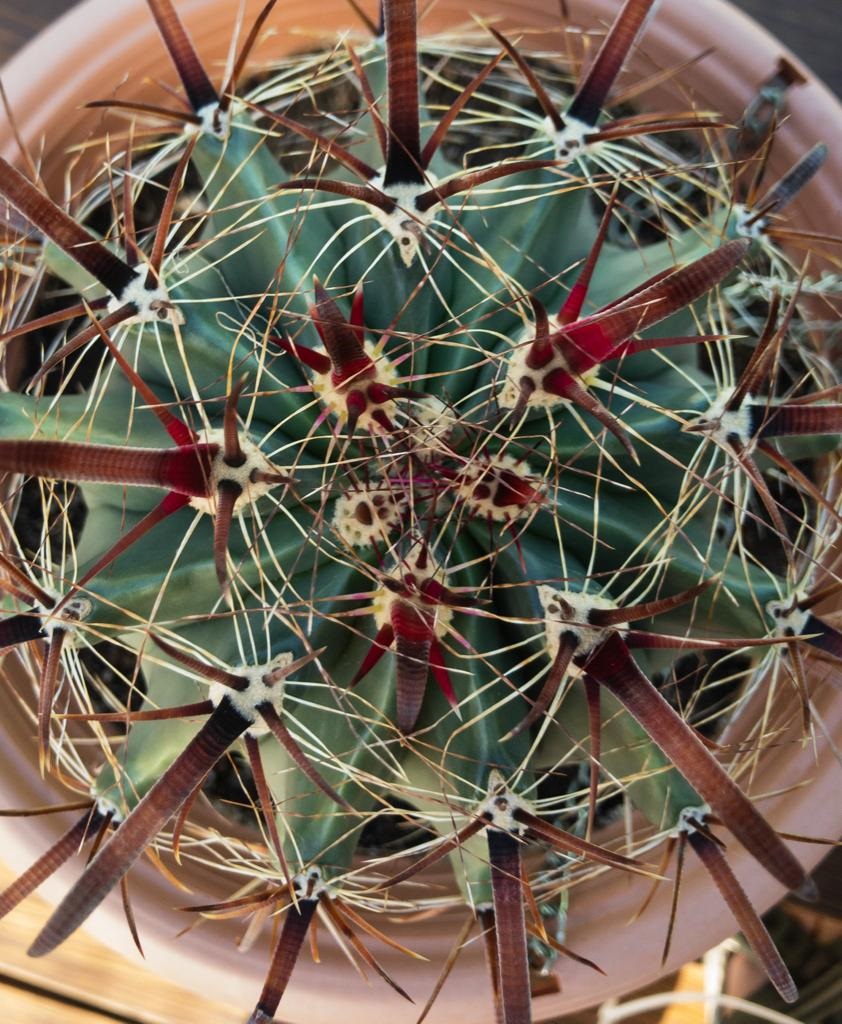


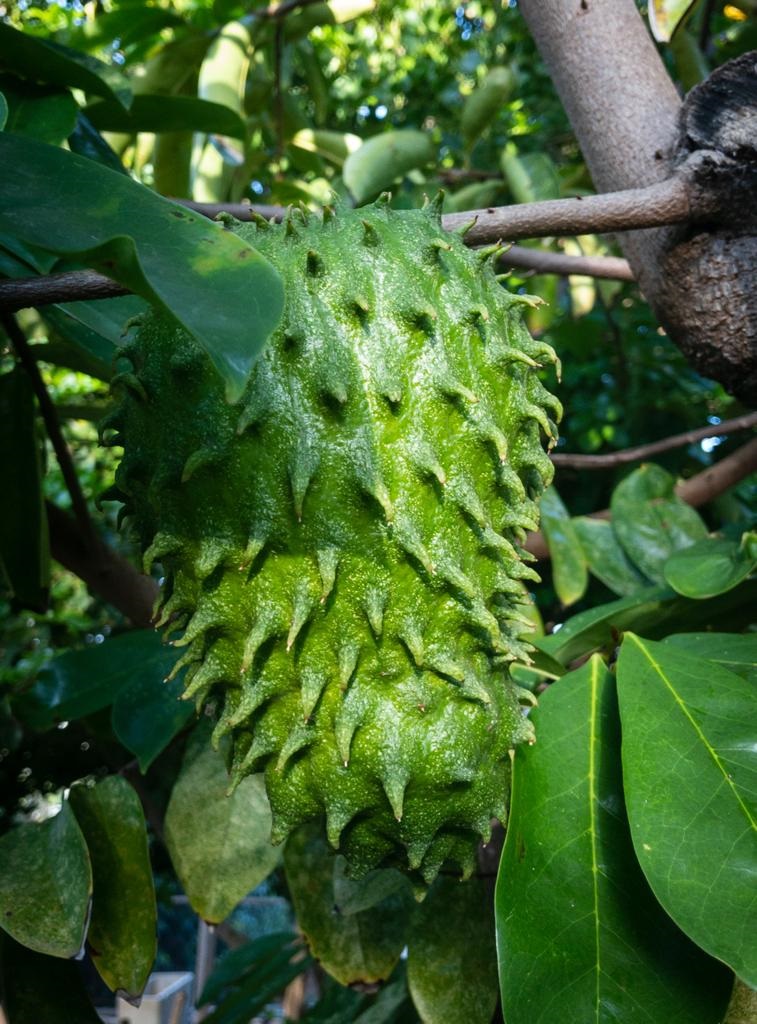


If you as Jeff would meet a stranger on the bus (let’s say in Berlin or Bogota Columbia) and they would ask you to introduce yourself, what would you answer?
Be honest and tell the truth. You should not be ashamed to tell about your credentials. But also stay humble and do not exaggerate. I don’t appreciate it when people misuse their authority in the position they have. I have just returned from a cruise and we met a lot of Americans and they always ask you two questions: where are you from and what are you doing. So I tell them my truth. But it does no tell who you as a person are. That is something you have to show by the way you act towards your fellow man.
How would you describe Jeff in one word or one sentence?
Friendly and professional.
Who are the persons that have inspired you the most in your career?
Many professionals in the fields that I work in have the same attitude I want to have. With their humanity and professionalism, I look up to these people as my role models. There were different people over the years.
What is a trait that is still a work in progress?
The way I interact with my fellow man and woman. Every single day I try to learn from my unconscious mistakes. My wife is my most trustworthy soundboard in that sense. I am always trying to improve myself.
What was a defining moment in your life?
I can recall different moments in my life. But what came up spontaneously was the day I got my motorcycle permit in Holland. I couldn’t afford myself a car in those days as a student, so I decided to get me a motor cycle to go around. This permit gave me a feeling of freedom that was unique, as I suddenly had almost limitless mobility. Because I could drive and go to the Hague and visit my sister or go to Nijmegen where my girlfriend lived or just hit the road Jack….. (please read “Zen and the art of motor cycle maintenance”!)
What would you want your Loved Ones, family, friends, and others to say about you let’s say 20 years from now?
He was a good man for the whole world.
What makes you stay optimistic about the future of Curaçao as we are in the middle of a worldwide pandemic, and recession, and in the middle of growing environmental challenges because of the global warming consequences? Is there anything else that you would like to add?
I will fight with all my abilities to let the good prevail. And I believe that all human beings are not inherently bad and ultimately abuses will be corrected. If you look at Curaçao, some things are not going well, but they’re also good things happening on an individual, group, and country level.
Someone once told me once: “Don’t look at the bad things around you, but look at the good things that are happening every day on this island”. If I follow that principle and compare ourselves with other countries, we still are a blessed country. And of course, some things need improvement, but I firmly believe that good will prevail in the end.
More information:
Facebook
LinkedIn
One of the 250 Influencers of Curaçao
Jeff Sybesma, is a biologist, legal advisor, associate professor, member of the “Raad van Advies” and part-time Judge, photographer, writer of multiple popular and scientific articles and most and foremost, he is an environmental protector, that is not afraid to speak out his mind. As a curious and driven person, he has always pro-actively have chosen to explore new career moves, all related in a sense with his deep love for Nature and our environment. Making hard choices makes a person stronger, as life can be ruthless at times, is the way he looks at life.
A “Yu di Kòrsou” but also a “Citizen of the world” he, as a multi-faceted person, is still very much involved and engaged in different important responsibilities, but he is also a “Bon Vivant”, that loves life and tries to live it to the fullest. For all the different jobs, he is still involved in our society, the different articles he regularly publishes with “his pen”, where he takes on challenging subjects and his consistency over the years as a professional, we consider Jeff one of the 250 influencers of the island, representing the “Sustainable Development”-sector. Look at the list of the Influencers we have interviewed or reported on, up to now.
The goal of the core group of Share2Uplift for 2022
The goal of the Share2Uplift movement is to: “Identify 250 leaders from all walks of life to connect, align and create impactful changes in all walks of life, which includes intergenerational collaboration by the end of 2022.” We will use interviewing Influencers, meet-and-greet events, “train-the-trainers”-programs on “Emotional Mastery” and “Intentionality “as national intervention strategies, to reach this goal on top of our goal to scale up the possibilities to connect, align and create impact via a virtual platform. We believe that by collaborating with Miguel Goede on the virtual Vision 2030 platform, we will accelerate the possibilities to connect the diaspora and others elsewhere in the world and on the island willing to constructively create impactful changes in Curaçao, to join.
As Share2Uplift, we are fully trying to align with this thinking of Center for Curriculum Redesign to promote this agenda in our educational systems and workplace. So, in that sense, we fully support any initiative to make our educational system 21st-century proof.
Share2Uplift aligners are those that: – Create an inspiring vision of the future; – Motivate and inspire people to engage with that vision; – Manage the delivery of the vision; – Coach and build a team, so that it is more effective at achieving the vision. These criteria are now being polished.
We also consider these 5 values the most important ones for Share2Uplift aligners. They are:
• Peace from within;
• Compassion;
• Respectfulness;
• Integrity;
• Responsibility.
As we will progress towards this goal, we will update you on the progress.
In this week’s personal tips, we will share some short videos on “Climate change”. We will upload one of these videos every day on our facebook.com/share2uplift page.
IPCC Sixth Assessment Report – Climate Change 2022: Mitigation of Climate Change trailer – YouTube
How climate change is driving extreme weather in 2022 – YouTube
UN scientists say it’s ‘now or never’ to limit global warming – BBC News – YouTube
UN report says carbon removal important to fight Global Warming | WION – YouTube
UN unveils landmark report on climate change | Global Warming | Climate Emergency | WION – YouTube
Why it’s hard to care about climate change – YouTube
